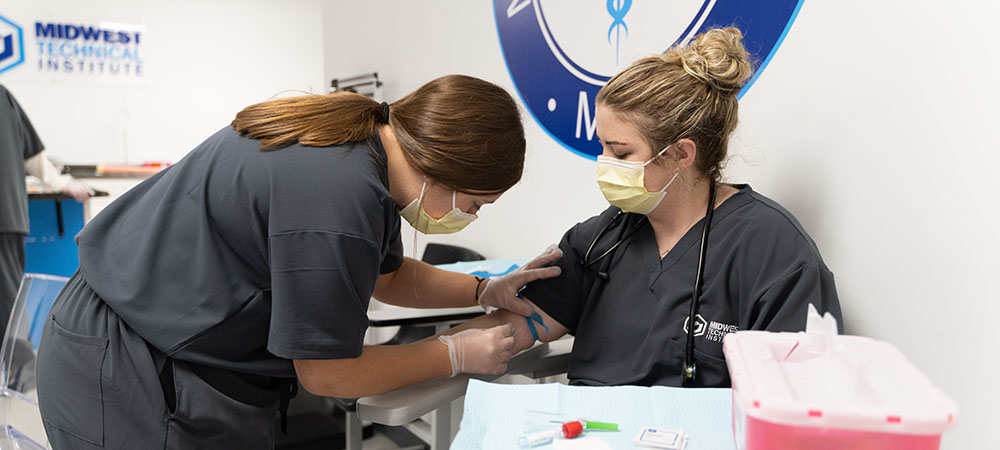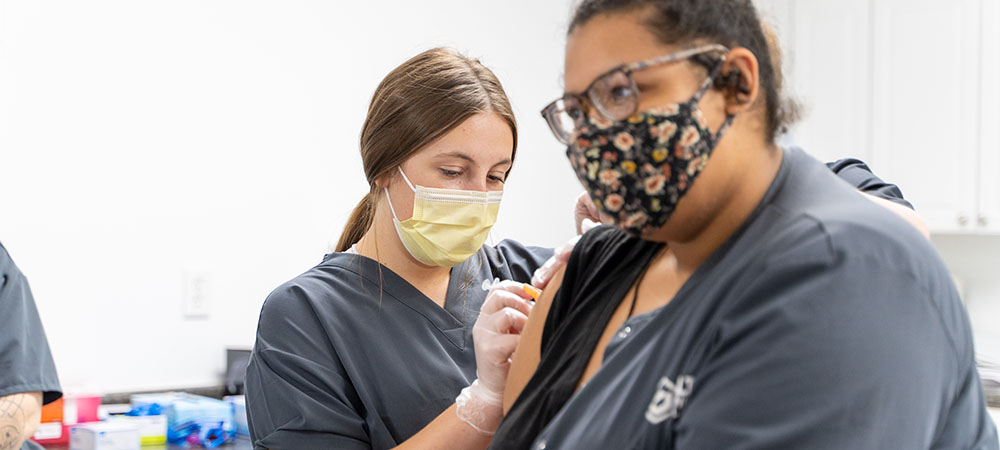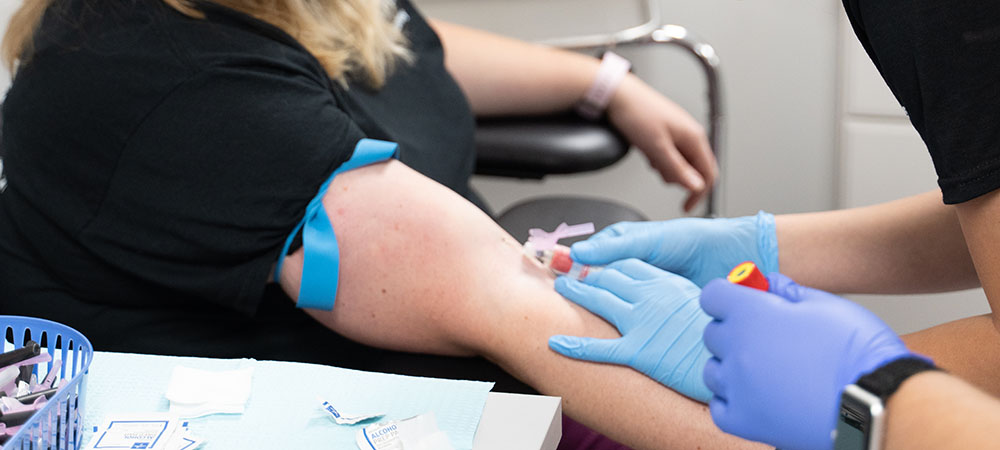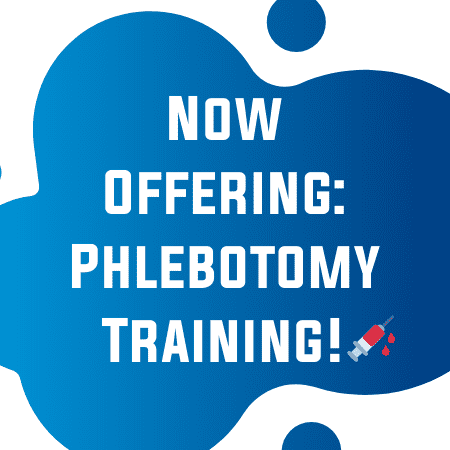How to Earn Your Phlebotomy Certification Through the Phlebotomy National Exams
Upon completing your five-week phlebotomist training at MTI, you’ll receive a certificate of completion and have the knowledge you need to take the NCPT, or National Certified Phlebotomy Technician exam-a prerequisite to earning your phlebotomy certification. Considering a phlebotomy certificate can be earned in a relatively short period, many students find it helpful to be familiar with the NCPT’s structure ahead of time. Familiarizing yourself with the NCPT is potentially a great way to minimize your test anxiety and develop a more efficient approach to reviewing its key concepts before your scheduled exam. Below is an overview of the NCPT: NCPT Structure According to the National Center for Competency Testing, the NCPT “contains 125 scored items, 25 unscored pretest items, and candidates are allowed three (3) hours to complete the examination.” As of 2022, the NCCT is composed of 90-95% standard, 4-option multiple-choice items, and an additional 5-10% alternative items-according to the NCCT, alternative items may include drag and drop, multi-select, and Hotspot assessment styles. NCPT Content Categories The NCPT includes a number of scored items across the following content categories,- Quality and Professional Issues
- Infection Control and Safety
- Orders and Equipment Selection
- Patient ID and Site Preparation
- Collections
- Problems and Correction
- Infection Control
- Anatomy and Physiology
- Pathology and Disorders
- Pre-analytical Errors
- Blood Collection Procedures
- Non-Blood Collection Procedures
- Order of Draw
- Patient Identification
- Patient Assessment, Education, and Preparation
- Specimen Handling and Transporting Procedures
- Quality Assurance
- Patient Safety and First Aid
- Clinical Laboratory Departments
How MTI’s Phlebotomy Course Helps You Prepare for the NCPT
MTI’s five-week Phlebotomy Course will help you gain critical knowledge in hematology, phlebotomy, basic anatomy, and medical terminology. All training is led by qualified instructors with real-world medical experience. In addition, students will be introduced to HIPAA (Health Insurance Portability and Accountability Act) requirements and receive bloodborne pathogen training. In addition to preparing you for the NCPT, MTI’s phlebotomist training helps you apply the skills and knowledge you gain throughout your coursework to hands-on medical practices. With classrooms designed to simulate laboratory environments, you’ll learn how to properly oversee everyday laboratory procedures-collecting and handling specimens for testing, managing patient care, and ensuring overall safety. In addition, you’ll become certified in CPR, AED, and first aid. MTI’s Phlebotomy Course is the first step toward earning your phlebotomy certification-the skills and knowledge you’ll gain along the way are a pathway to a rewarding new career in an essential healthcare field. MTI currently offers phlebotomy training in:Interested in Learning More About Phlebotomy?
Fill out the form below to receive info about our career training programs.
Phlebotomy Training: NCPT Study Tips
Need help studying for your phlebotomy certification? In addition to MTI’s Phlebotomy Course, these study tips can help prepare you for the NCPT. Take a Practice Test Although a practice test may not directly reflect the content of the NCPT, it’s an effective way to review the content categories within. Below are some free practice tests you can access online, Create Flashcards Flashcards are a simple and cost-effective way to review the main principles of the NCPT, from virtually anywhere. For advice on creating flashcards and how to use them for studying, check out this helpful video: Avoid Test Anxiety Test anxiety is real-while experiencing a few nerves prior to a test is a common experience for many people, that anxious energy can sometimes be debilitating for others and create strong feelings of self-doubt. Don’t feed into the panic-follow these basic tips to help cut down on test anxiety,- Establish a studying routine and stick to it
- Avoid studying when you feel stressed
- Prioritize your health-eat healthy, exercise, and ensure you’re getting enough sleep
- Practice relaxation techniques



